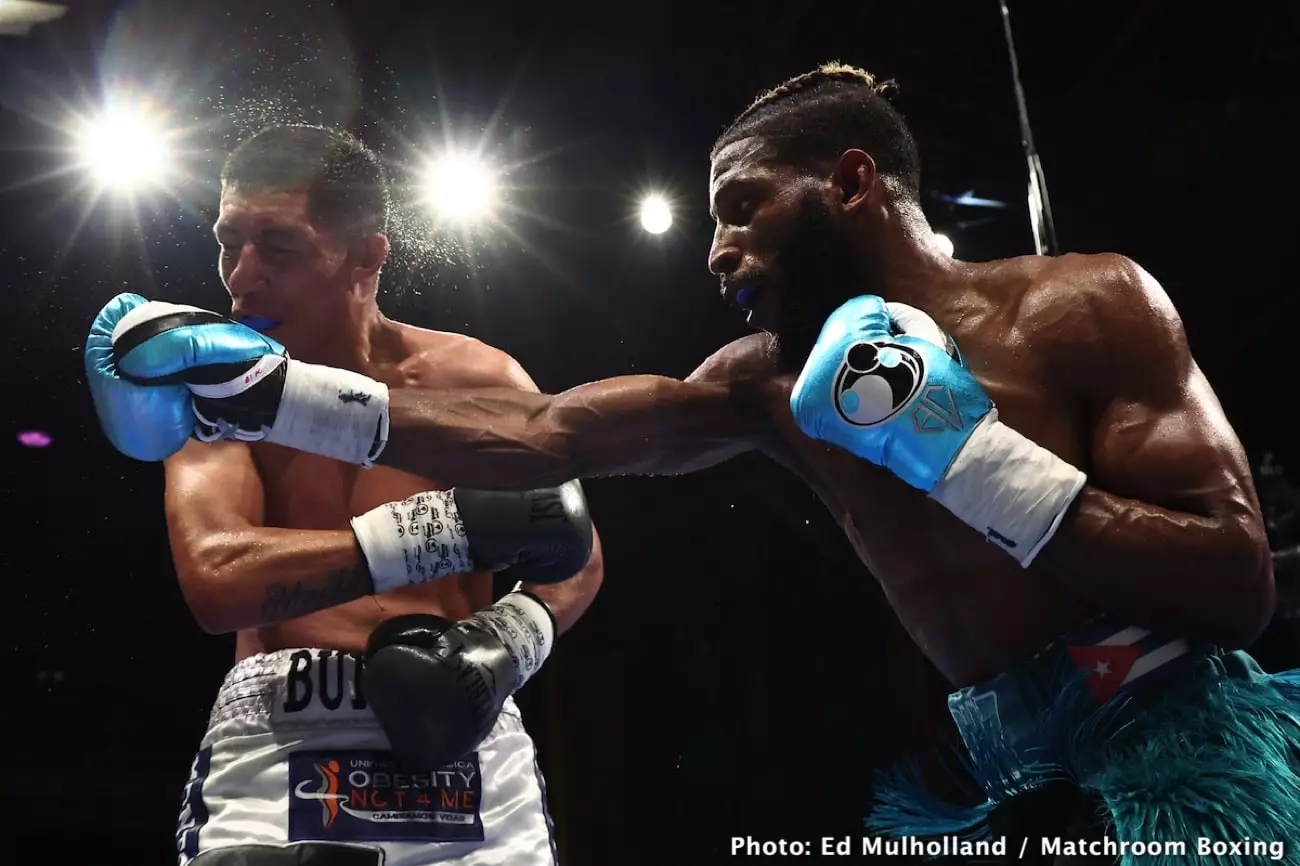In recent weeks, the dynamic between two promising lightweight boxers, Andy Cruz and Keyshawn Davis, has become increasingly charged. Cruz, a 2020 Olympic gold medalist and an undefeated professional fighter, took to social media to directly challenge Davis after claims made by the latter regarding a supposed lack of interest from Cruz’s side in a potential matchup. This unfolding rivalry highlights the complexities and competitive nature of the boxing world, particularly within the lightweight division.
Cruz, known for his impressive amateur background and now with a professional record of 4-0 with 2 knockouts, has not shied away from asserting his desire to fight Davis. In his recent posts, Cruz demanded that Davis provide proof of any contract that allegedly was sent to his team, emphasizing his readiness to confront his rival in the ring. This challenge is significant considering their past encounters, where Cruz emerged victorious in all four of their amateur bouts, including a decisive 4-1 win during the 2020 Olympics finals.
Cruz’s assertive stance serves a dual purpose: it not only challenges Davis’s claims but also positions Cruz as a serious contender eager to prove his dominance once again. By calling out Davis directly and asking him to share the supposed contract, Cruz is attempting to paint Davis as the reluctant fighter, potentially trying to frame the narrative in his favor.
The history between Cruz and Davis is crucial to understanding their rivalry. Cruz has established himself as a formidable opponent, having repeatedly outperformed Davis in their amateur encounters. Each victory has fortified Cruz’s confidence and public persona as an elite fighter. The contrast in their professional trajectories, however, is noteworthy. While Cruz was not signed by Top Rank—a major boxing promotion that instead opted for Davis—he is still making his mark independently under Matchroom Boxing.
Davis, on the other hand, has been positioned carefully in his professional ascent, with critics suggesting that his matches are orchestrated to develop his career safely, avoiding high-risk opponents prematurely. His recent victory over Gustavo Lemos, a fighter who has shown inconsistency, was viewed by many as a strategic choice rather than a showcase of his true abilities. Thus, Cruz’s callout could be perceived as a challenge not just to a fight, but to Davis’s overall credibility and readiness to face tougher opponents.
The next steps for both fighters are critical. Cruz is eager to face Davis, especially given the opportunity for revenge after their significant amateur rivalry. Conversely, Davis appears to have other plans, reportedly eyeing a future bout with WBO lightweight champion Denys Berinchyk. This maneuvering suggests a careful strategizing on both sides, with Davis focusing on a title shot while Cruz seeks validation through a competitive match.
Davis’s dismissive comments regarding Cruz’s willingness to fight paint him as confident, perhaps overly so—asserting that Cruz would not sign a contract if one were sent. Such statements, however, also reflect a potential insecurity about stepping back into the ring with someone who has consistently bested him. The mental aspect of boxing cannot be overlooked here, as both fighters navigate public perception and personal ambition in a sport where reputation is crucial.
As boxing fans keenly follow the developments of this rivalry, it becomes evident that the potential confrontation between Andy Cruz and Keyshawn Davis is not merely a matter of contracts and publicity—it represents a much deeper narrative of ambition, history, and the quest for respect in the lightweight division. Whether this fight materializes remains uncertain, but the stakes are undeniably high for both fighters. Cruz aims to solidify his legacy by overcoming a rival once again, while Davis seeks to prove that he has risen above his amateur struggles. Ultimately, the boxing world watches eagerly—ready for a showdown that could redefine their careers.

